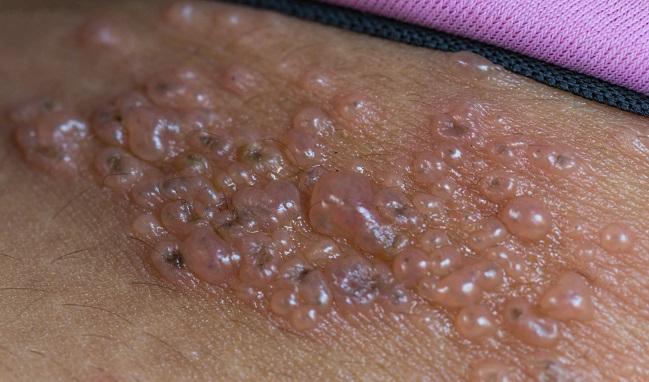Shingles Strongly Tied to Increase in MI and Stroke Risks
The findings bolster the case for getting a shingles vaccine even though the biological mechanism is not fully known, some say.

Developing shingles, the viral disease also known as herpes zoster (HZ), could carry long-term consequences beyond the pain of a skin rash. Even when potential confounders are taken into account, shingles is associated with increases in MI and stroke risk, according to recent research findings.
Risks were greatest in the first year after HZ then decreased thereafter, report Sung-Han Kim MD, PhD (University of Ulsan College of Medicine, Seoul, South Korea), and colleagues. Notably, the uptick in stroke was most acute for individuals younger than 40 years old, who as a group tend to have fewer risk factors for atherosclerosis.
Previous studies have not adequately controlled for potential confounding factors, the researchers say. “This study adds the strong evidence of causal relationship between shingles and cardiovascular diseases in terms of strength of association, its specificity, and the temporal relationship,” Kim told TCTMD in an email.
According to Kim, cardiologists should have shingles on their radar until more studies are done to determine “the appropriate clinical characteristics and biomarkers to differentiate patients with HZ-related stroke and myocardial infarction form other causes, and until further epidemiological studies have elucidated the effect of antiviral agent use or vaccination on cardiovascular outcomes.”
The research letter was published online July 3, 2017, in the Journal of the American College of Cardiology.
Viral Risk
Kim and colleagues reviewed comprehensive social and medical data on approximately 570,000 people between 2003 and 2013 drawn from the National Health Insurance Service database. Propensity-score matching yielded a comparison of over 23,000 individuals with and without prior HZ infection.
Subjects with HZ were more likely to be female and, importantly, were more likely to have risk factors for stroke and MI, including rheumatoid disease, peripheral vascular disease, diabetes, and hypertension. That’s despite the fact that those with HZ were also more likely to lead healthier lifestyles overall—less likely to smoke or consume alcohol, be physically active, and to come from higher socioeconomic groups.
The combined risk of MI and stroke was significantly higher in HZ participants than in those without HZ (OR 1.41; 95% CI 1.25-1.59), as were the individual risks of both stroke (OR 1.35; 95% CI 1.18-1.54) and MI (OR 1.59; 95% CI 1.27-2.01). Kim and his co-investigators also estimated that the increase in stroke and MI incidence amounted to 1.34 and 0.80 cases per 1,000 person-years, respectively.
Vaccination for CVD Prevention?
Commenting on the study for TCTMD, Stephanie Factor, MD, MPH (Icahn School of Medicine at Mount Sinai, New York, NY), said “this study and other studies suggest that randomized clinical trials with a shingles vaccine should be done in people under the age of 60 to determine if the vaccine can prevent stroke and heart attack with that group.”
Currently, the vaccine is only recommended for adults over the age of 60.
Yet even with the new data, Kim et al say that a causative role remains unclear. They note many possible biological mechanisms between cardiovascular events and HZ. For example, replication of the varicella-zoster virus (VZV) adjacent to an artery could lead to inflammation of the artery and subsequent thrombosis and rupture, or repeat subclinical reactivations of the virus might have an effect. Also, they say, there’s the possibility of “increased sympathetic tone, blood pressure, and adverse emotional reactions, and the altered immunological status caused by VZV reactivation and subsequent vulnerability to cerebrovascular events.”
Understanding these sorts of links will require further research, Kim told TCTMD. “Biologic plausibility studies are still lacking and further immunopathophysiologic mechanism studies between zoster and cardiovascular diseases are needed.”
For Factor, the most important public health message is that everyone aged 60 or older should get the shingles vaccine. Cardiologists have had and continue to have good reason to encourage such patients to do so, she added.
Ashley Lyles is the 2017 recipient of the Jason Kahn Fellowship in Medical Journalism. She is currently a graduate student…
Read Full BioSources
Kim SH, Kwon SU, Jun HW, et al. Herpes zoster increases the risk of stroke and myocardial infarction. J Am Coll Cardiol. 2017;70:295-296.
Disclosures
- Kim and Factor report no relevant conflicts of interest.


Comments